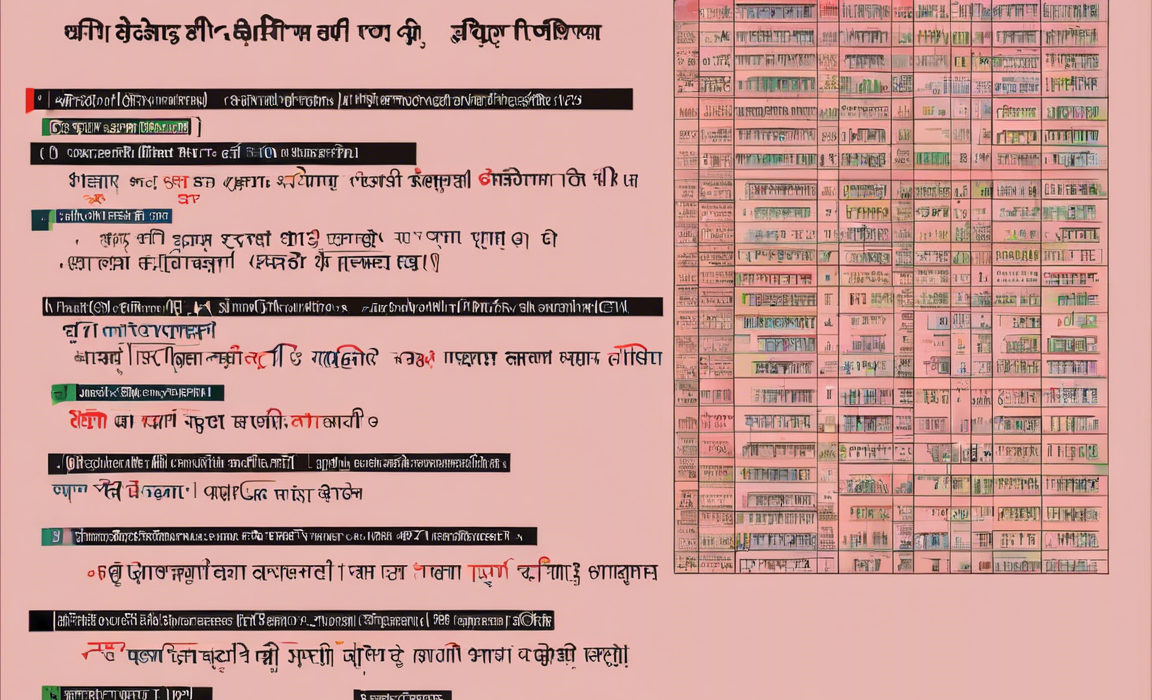EWS in Hindi: आर्थिक रूप से कमजोर वर्ग
In the context of Indian government policies and initiatives, the term EWS stands for Economically Weaker Section. It is a classification used for individuals or families who belong to the lower income strata of society and are in need of financial assistance and support. The EWS category is often the target of various welfare schemes and reservations aimed at uplifting the economically disadvantaged sections of the population.
Understanding EWS in the Indian Context
EWS is a term that has gained prominence in recent years, particularly with the introduction of the EWS reservation quota in government jobs and educational institutions. The aim of such reservations is to provide opportunities to individuals from economically weaker backgrounds who may not have had access to quality education or employment prospects due to financial constraints.
Criteria for EWS Classification
The criteria for determining EWS status may vary depending on the specific scheme or policy. In general, individuals belonging to the EWS category are those whose annual income falls below a certain threshold, as defined by the government. Other factors, such as land ownership, household assets, and family size, may also be taken into consideration when classifying individuals as belonging to the EWS.
EWS Reservation in India
In India, the introduction of the EWS reservation quota has been a significant step towards promoting social inclusion and equality. Under this quota, a certain percentage of seats in government jobs, educational institutions, and other facilities are reserved for individuals from the EWS category. This reservation is in addition to the existing quotas for Scheduled Castes (SC), Scheduled Tribes (ST), and Other Backward Classes (OBC).
Challenges and Criticisms
While the EWS reservation policy has been lauded for its aim to provide equal opportunities to all sections of society, it has also faced criticisms and challenges. Some critics argue that the implementation of EWS reservations has led to increased competition for limited seats, especially in educational institutions. There are also concerns about the potential misuse of fake income certificates to avail the benefits meant for the truly economically weaker sections.
Future Implications
As India continues to strive towards inclusive growth and development, the concept of EWS and the policies surrounding it are likely to evolve. It will be crucial for policymakers to address the implementation challenges and ensure that the benefits of such schemes reach the intended beneficiaries. By promoting income equality and social justice, the EWS initiatives have the potential to create a more equitable society for all its citizens.
Frequently Asked Questions (FAQs)
- Who qualifies as EWS under government schemes?
-
Individuals or families whose annual income falls below a specified threshold as defined by the government are typically classified as belonging to the EWS category.
-
What benefits are available to EWS individuals in India?
-
EWS individuals may have access to reservations in government jobs, educational institutions, and other public facilities. They may also be eligible for welfare schemes and subsidies.
-
How can one obtain an EWS certificate?
-
To obtain an EWS certificate, individuals need to provide relevant documents such as income proof, asset details, and other supporting documents to the designated issuing authorities.
-
Is EWS reservation applicable in private sector jobs?
-
As of now, EWS reservation is primarily applicable in government jobs and educational institutions. Some states may have regulations for EWS reservation in the private sector.
-
What is the difference between EWS and OBC category?
-
EWS category is based on economic criteria, while OBC (Other Backward Classes) category is based on social and educational backwardness. Individuals may belong to both categories based on the specified criteria.
-
Can EWS reservation be availed by individuals belonging to the general category as well?
-
Yes, individuals belonging to the general category but meeting the EWS criteria can avail of the benefits of EWS reservations in government jobs and educational institutions.
-
Are there any age limits for availing benefits under EWS schemes?
-
The age limits for availing benefits under EWS schemes may vary depending on the specific policy or scheme. It is advisable to refer to the official guidelines for accurate information.
-
How has the EWS reservation impacted higher education admissions in India?
-
The EWS reservation has led to increased competition for limited seats in higher education institutions. It has also opened up opportunities for individuals from economically weaker backgrounds to access quality education.
-
What measures are in place to prevent misuse of EWS certificates?
-
Authorities often conduct verification checks and scrutinize the documents submitted to ensure that only eligible individuals benefit from the EWS reservations. Stringent penalties may be imposed on those found guilty of misrepresentation.
-
Are there any specific industries or sectors where EWS reservations are more prominent?
- EWS reservations are primarily implemented in government sectors such as civil services, public sector undertakings, and educational institutions. However, certain state-specific regulations may extend EWS reservations to other sectors as well.
In conclusion, the concept of EWS plays a crucial role in fostering inclusivity and economic empowerment in society. By providing targeted support to economically weaker sections, governments can pave the way for a more equitable and progressive society. It is important for all stakeholders to work together towards effective implementation and monitoring of EWS policies to ensure that the benefits reach those who truly need them.


